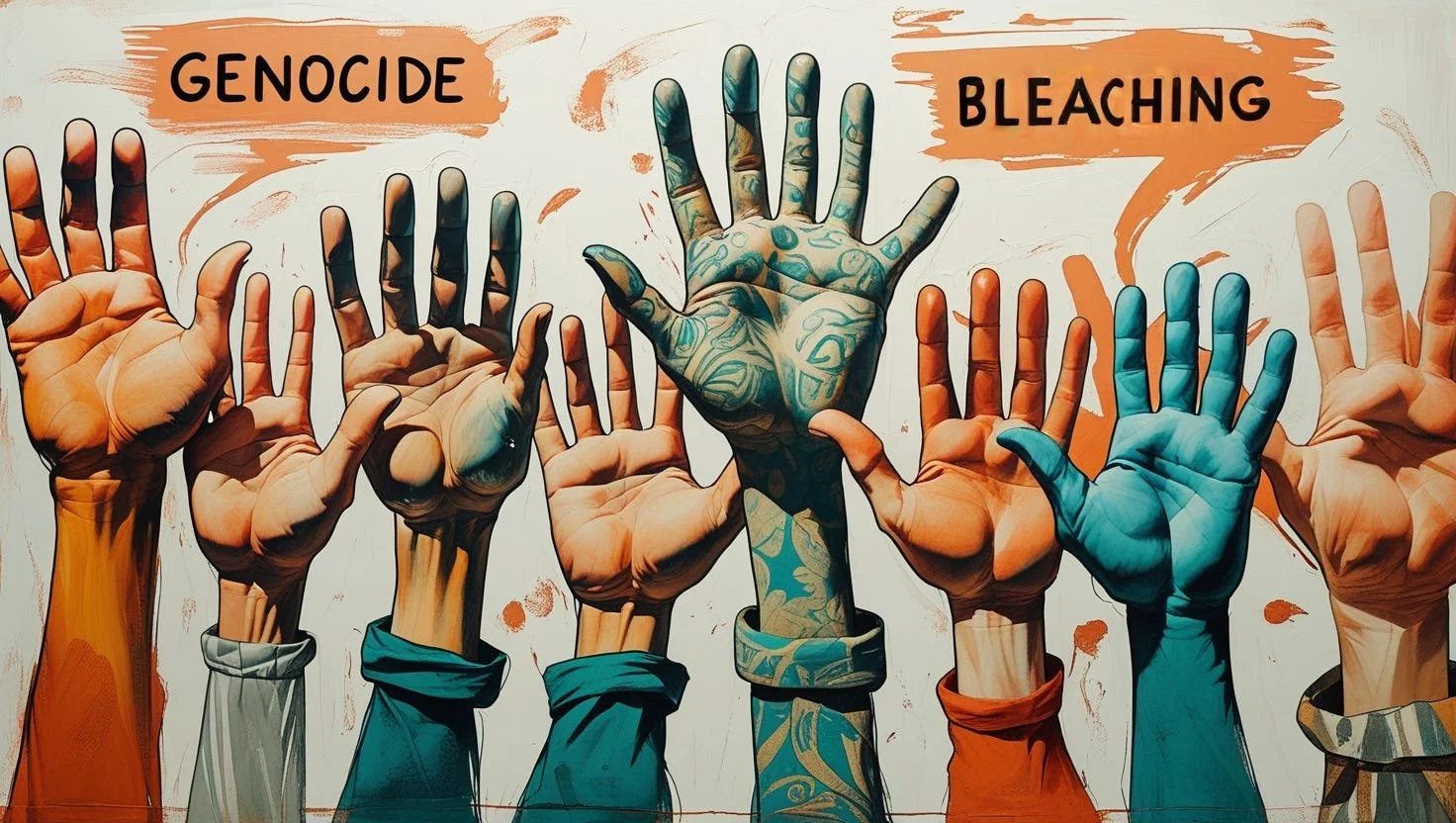The Rooster In Flight - A Substack Article
A Laundry of Lies and Half Truths
How Trump and Ramaphosa Bleach Atrocities Into Ambiguity
By: Wynand Johannes de Kock
May 27, 2025 
Last week I watched two men lie to each other on television and call it diplomacy One an extrovert. One an introvert. Both masters of the half-truth, that peculiar political art form where you speak enough truth to avoid being called a liar whilst with holding enough to avoid being called honest.
In the Oval Office last week I watched two masters of spin cycle their syllables—Trump’s genocide spins hot, Ramaphosa’s transformation tumbles cold. Both agitators in this linguistic laundromat, scrubbing blood from etymology until only the ghost of meaning remains. The protest chant—“Kill the farmer, kill the Boer”—emerges from their rhetorical rinse cycle sanitised: Trump frames it as literal murder, Ramaphosa as metaphor for systemic dismantling.
I feel hollowed out by their words and their spectacle. Empty.
Not the good good empty that comes from intermittent fasting—the emptiness that comes after watching grown men play children's games with other people's lives. The deep burn that comes from realising that as an Afrikaner the pain of my people have been used to advance some hidden agenda of the most powerful leader in the Western world.
Trump waves footage of Congolese corpses and calls them white farmers. He insists, even after being corrected. Ramaphosa invokes the spirit of Mandela, that great teller of hard truths, even as the rainbow nation unravels thread by thread under his watch—defending land acquisition without compensation whilst 2.5 million hectares of state land gather bureaucratic dust. Neither is lying, exactly. Neither is telling the truth, exactly.
Two half-truths do not make one whole truth.They make one whole mess.
Here two world leaders of semantic bleaching performed their practiced political dance—language stripped bare, suspended between competing narratives until meaning seeped lifeless onto the floor. Both Trump and Ramaphosa washing words until they emerged colourless, powerless, severed from the weight of actual dying: people die not from words but from what words bleach away—the concrete realities of stolen land, emptied granaries, bullet-riddled backs.
Trump flicks through the photographs like a dealer shuffling cards—murdered, murdered, horrible. His fingers move quickly across images of violence, some not even from South Africa, some lifted from other continents, other conflicts. Who cares? Don't let facts get in the way of a good story. This is language as performance art, truth as raw material to be processed through the bleaching cycles of political theater.
Interested in completing the article? Follow Wynand on Substack